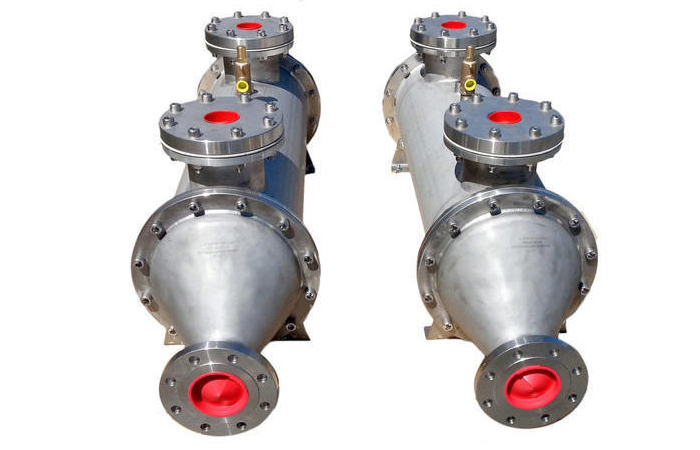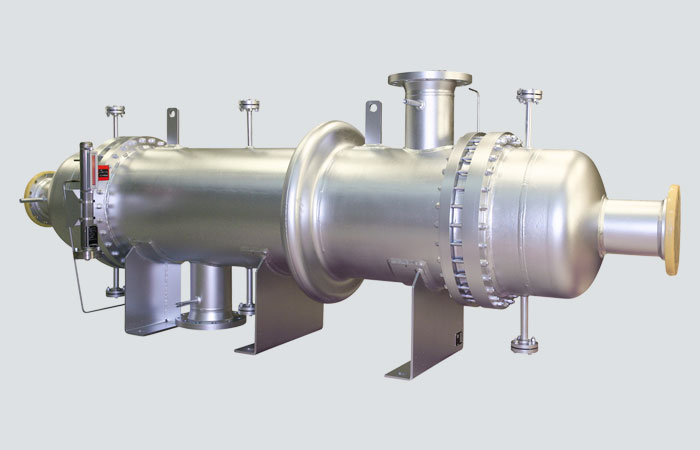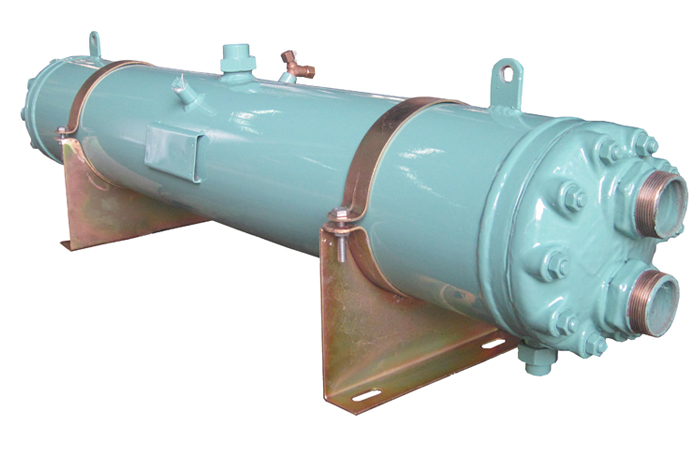


The water-antifreeze mixture runs through the heat exchanger dumping heat, but remaining separate from corrosive salts and chemicals found in the water the boat is floating in. If the ocean water eventually corrodes and ruins the heat exchanger it can be replaced at a fraction of the cost of replacing the engine. To protect the marine heat exchanger from corrosive salts, a sacrificial zinc anode is screwed into the heat exchanger. This anode must be periodically replaced as part of regular maintenance. Because the water the boat floats in may be contaminated with floating particles such as wood or styrofoam balls the well designed boat will have a filter to remove these particles before they are moved toward the heat exchanger.
Because the cooling water (which is chemically treated fresh water) is at a temperature of 70-80 degrees C, it would not be possible to flash off any water vapour unless the pressure in the heat exhanger vessel was dropped. To alleviate this problem, a brine-air ejector venturi is used to create a vacuum inside the vessel. Partial evaporation is achieved and the vapour passes through a demister before reaching the condenser section. Sea water is pumped through the condenser section to cool the vapour sufficiently to precipitate it. The distillate gathers in a tray, from where it is pumped to the storage tanks.
Marine heat exchanger is the most common way to cool a boat's engine, using the lake, river / ocean water in which the boat floats. Since this water may be corrosive the engine may be cooled by a sealed mixture of distilled water and antifreeze. Heat from the water-antifreeze mixture is then transferred to the ocean (or lake or river) water which flows into a heat exchanger.
A water-jacketed exhaust manifold is necessary on marine engines to reduce the temperature of the engine-room air space and the exhaust pipe. If the exhaust manifold is in the sea-water circuit it should be installed with the sea-water inlet at the back and the outlet at the front on the top to ensure that it operates completely full of sea-water.